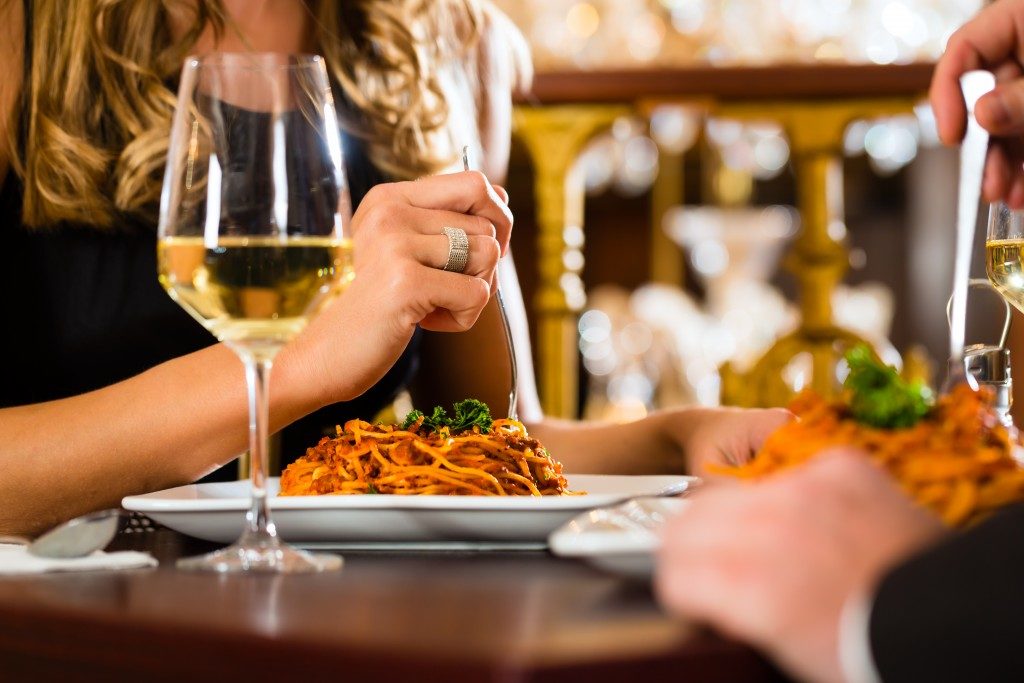Kids learn more quickly at a young age. They are a blank slate that has not yet experienced what the world has to offer them. Any responsible parent must introduce the world to them piece by piece through hobbies and interests.
Cooking is a great way to start because it is an essential life skill taught in the comfort of the home. There are many tasks to accomplish around the kitchen, and there will always be a simple task for a young child. Cooking teaches the child how to prepare a meal from start to finish. At the same time, it teaches fundamental life virtues.
Respect
Before everything else, they have to be familiar with the preparation area. The kitchen isn’t the safest area for kids as it’s filled with sharp and pointy objects, hot surfaces, and other dangers. They should be conscious of the space they occupy and how it can harm themselves and others if they’re not aware of it. Parents should assign appropriate tasks by their kids’ age and supervise—avoid micromanaging—their tasks.
Over time, they’ll become comfortable with their surroundings. But as long as they also respect it, no harm will come to them.
Patience

Creating tasty meals is often a long and unhurried process. Cooking is the ultimate test of patience, with a delicious dish as a tangible reward. And good food brings good memories.
Kids would value what’s on their plate if they knew the process of how it got there. Take them to the market, so they know that preparing a meal starts with the ingredients. Teach them to source the best and freshest ingredients in the market.
Give them tips and pointers on finding quality products, and then sift through the market ingredients. At the start, parents have to approve their final choices before buying them. But as time goes on, they will be more and more consistent in choosing ingredients.
Back in the kitchen, assemble the required ingredients on your countertop made of quartz. Afterward, patiently prepare them for cooking. From washing everything to remove germs and dust, carefully chopping meats and vegetables into similar sizes, all steps in the preparation phase should be done with care. This integrates the idea that they shouldn’t rush. Throw the excess and scraps during downtime to maintain a clean working space. Soon they will develop an eye for detail as they learn how to focus on the smallest of tasks.
They would learn to wait for the proper time and place to add an ingredient to the stove. Each component interacts differently with fire, and they have to understand that they can’t dump in all on the pot and be done with it. Through experience and supervision, they will know which ingredient cooks the slowest and which the fastest, when to add a particular spice, and when the meal is safely cooked.
This patience also extends to the parent. Be patient with them; don’t assume they know the same things as an adult. Expect them to make mistakes and react appropriately. An ill-tempered overreaction could be the difference between a lifelong passion or an abandoned hobby.
Independence
The more they learn their way around the kitchen, the more eager they are to cook alone. Independence starts with delegation. Start them out with simple tasks, and they’ll eventually want to perform more complex ones. Even if the parent is the head chef of the household, involve them in the process so that they know that their opinions are heard and valued. Letting them work independently allows them to discover their own unique style. They would find techniques that work for them and what doesn’t.
Working independently boosts confidence and self-esteem. It is an important virtue that will apply to the rest of your children’s lives.
Collaboration
Until the point they can work on the kitchen independently, they have to work with the parent. Teaching children how to cook is a great bonding experience for the whole family. They can converse freely as their hands are busy working.
Since cooking is done every day, they can expect a consistent time to share their thoughts. As tasks are divided up, the group has to communicate effectively to ensure everyone is on the same page and the dish is cooked to its best capacity. This builds character as both a leader and a follower.
Teaching kids how to cook is a valuable experience for both the parent and child. In that space, they will learn more about each other as they consistently bond every day. A kitchen is a microcosm of their life in the future, especially when they reach the workplace. Hopefully, they will have internalized good manners while they also learned how to make good food.









